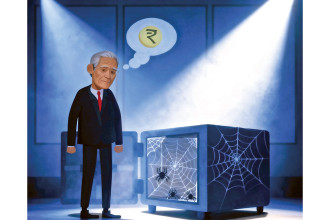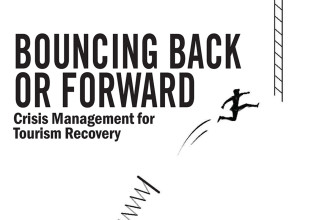
Skyrocketing inflation has become a major problem across the world. Being a largely import-based economy, the government of Nepal has imposed a ban on ten luxury items till mid-July to minimise rapidly depleting foreign exchange. The ban is applicable on all imported liquors, toys, cars and vans and motorcycles with an engine capacity of more than 250 cc, mobile sets worth more than $600, colour television sets larger than 32 inches, diamond, cigarettes and tobacco products, playing cards, and ready-to-eat snacks.
According to the statistics given by Nepal Rastra Bank, gross foreign exchange reserves have decreased by 18.5% to $9.58 billion in mid-March 2022 from $11.75 billion in mid-July 2021. The rapid decline in foreign currency has propelled the government to stem the flow of foreign currency draining out of the country.
To sustain the national treasury and control trade deficit that is threatening to cross the $15 billion mark by the end of the current fiscal year, Nepal’s government approach may seem to be working. But is it really so?
One must question the blanket approach on what exactly is non-essential, how are high value products selected, what are the implications of the ban on the sector, what are the ripple effects and are they justifiable. The largest high value product now banned is motor vehicles where the import value in the last three quarters of the current fiscal year totalled about $470 million. This is approximately 6% of total imports and 21.6% of the total depleted reserve of $2170 million. Other materials that are banned add up to only a few million dollars.
In this issue of Business 360, we spoke to a few experts on the government’s decision - is it a short-sighted measure that could hamper, dampen and further accelerate business insecurity creating widening economic uncertainties for the future. Could there have been a better alternative?
 The global economy has been shaken-up drastically post-pandemic and further hit by the Russia-Ukraine conflict. If we see countries in our neighbourhood, most of the economies are struggling with the worst performing being Sri Lanka where the entire economy has caved in due to huge foreign debt. If we look at Bangladesh which is one of the best performing economies in South East Asia and is known for its exports, it is shocking to see reports that they are sitting on forex reserves of around $40 billion which will sustain only five months’ worth of imports. Other major economies are also struggling across the world; this is just an indication of an impending global recession.
The depleting forex reserve should be of concern for all in Nepal, however, there are varied reasons for the decrease in our forex reserves which may be contributed by investment in cryptocurrency, lack of import substitution. However, an arbitrary ban on import of certain items by labelling them as luxury is not good for the economy, a thorough study should be done to identify items that are truly unnecessary, and the impact such a ban or restriction would have on saving our forex reserves, along with the long-term impact such a ban will have on the economy.
The government should also see the positive aspects like employment generation these sectors provide, the tax revenue they contribute to the exchequer, along with other social impacts. There are items which have been banned but do not use up major forex, for instance imported liquor uses around $11 million which is less than 0.13% of the total forex used for imports, in-terms of revenue collection for the government it contributes nearly 250% of the CIF value at customs alone. The ban has been in effect for a little over three months and we are already seeing shortage of a few products. With Nepal attracting tourists especially from India, the lack of foreign liquor is going to hurt the hotel and restaurant industry too, further with an open border with India, we are already seeing infiltration of liquor from across the border, this will further impact the economy with revenue loss to the exchequer and displacement of legitimate traders, while illicit trade becomes rampant. The economic indicators are weak and with bank financing becoming difficult even if the ban on import of four-wheelers is lifted it will not consume a lot of forex going forward, but will enable businesses to survive even with the volume of business going down.
Imposing a ban on items to save forex is a very short-term measure, the government should start chalking out a long-term strategy to combat decreasing balance of payments, which has been a perennial issue in Nepal. The government needs to first identify sectors where we can attract more FDI, increase our exports, replace our imports particularly in the agri-sector also find ways by which we can further increase the flow of tourists into Nepal. To achieve this, the government has to have a firm policy which is lucrative for investors and is a forward-looking policy, else the list of banned items will only keep increasing while our economy crumbles. With the right intent and bold decision making by the government, Nepal is poised to become a developed economy with strong economic indicators.
The global economy has been shaken-up drastically post-pandemic and further hit by the Russia-Ukraine conflict. If we see countries in our neighbourhood, most of the economies are struggling with the worst performing being Sri Lanka where the entire economy has caved in due to huge foreign debt. If we look at Bangladesh which is one of the best performing economies in South East Asia and is known for its exports, it is shocking to see reports that they are sitting on forex reserves of around $40 billion which will sustain only five months’ worth of imports. Other major economies are also struggling across the world; this is just an indication of an impending global recession.
The depleting forex reserve should be of concern for all in Nepal, however, there are varied reasons for the decrease in our forex reserves which may be contributed by investment in cryptocurrency, lack of import substitution. However, an arbitrary ban on import of certain items by labelling them as luxury is not good for the economy, a thorough study should be done to identify items that are truly unnecessary, and the impact such a ban or restriction would have on saving our forex reserves, along with the long-term impact such a ban will have on the economy.
The government should also see the positive aspects like employment generation these sectors provide, the tax revenue they contribute to the exchequer, along with other social impacts. There are items which have been banned but do not use up major forex, for instance imported liquor uses around $11 million which is less than 0.13% of the total forex used for imports, in-terms of revenue collection for the government it contributes nearly 250% of the CIF value at customs alone. The ban has been in effect for a little over three months and we are already seeing shortage of a few products. With Nepal attracting tourists especially from India, the lack of foreign liquor is going to hurt the hotel and restaurant industry too, further with an open border with India, we are already seeing infiltration of liquor from across the border, this will further impact the economy with revenue loss to the exchequer and displacement of legitimate traders, while illicit trade becomes rampant. The economic indicators are weak and with bank financing becoming difficult even if the ban on import of four-wheelers is lifted it will not consume a lot of forex going forward, but will enable businesses to survive even with the volume of business going down.
Imposing a ban on items to save forex is a very short-term measure, the government should start chalking out a long-term strategy to combat decreasing balance of payments, which has been a perennial issue in Nepal. The government needs to first identify sectors where we can attract more FDI, increase our exports, replace our imports particularly in the agri-sector also find ways by which we can further increase the flow of tourists into Nepal. To achieve this, the government has to have a firm policy which is lucrative for investors and is a forward-looking policy, else the list of banned items will only keep increasing while our economy crumbles. With the right intent and bold decision making by the government, Nepal is poised to become a developed economy with strong economic indicators.
 To understand the concept of the current import ban in Nepal, we have to look at why the government implemented the ban. Looking at the current economic perspective of Nepal, our country is not self-reliant and as consumers, we consume everything that is imported from the moment we wake up to the time we go back to bed. Our economy is totally import-based, and various problems have started to arise post the Ukraine-Russia war pressure on the global supply chain, rise in crude oil prices, weakening of the Nepali currency against the US dollar, and remittance instability.
Now, as massive importers, how do we buy products and whose money is used, and then the question arises as to how Nepal generates income? There are three resources through which Nepal earns foreign exchange. The first two are remittance and tourism followed by exports, foreign direct investments (FDIs), grants, and donations by multilateral and bilateral partners.
The current trend witnessed is that our expenses are more than our income. The increasing use of petroleum products is one of the major causes of the decrease of the foreign exchange reserve followed by the import of wheat and rice. Nepal, once an agricultural nation, we are importing around more than Rs 30 billion of rice, Rs 15 billion in millet (kodo), maize, dairy products, and what not. For the last 37 years, we have been importing agricultural products for consumption – irony for a once agri-based economy.
This alone gives us a view of the amount of spending on essential items. The government and the people should realise that we are capable of producing at least agri-based consumption goods. There should be more pressure on the import of necessary raw materials, and technology so we could drive our own production centres. We must learn to slow down youth migration and create opportunities for them in agriculture production so that they don’t have to go abroad in search of employment. To minimise imports, the government should be focusing on giving solid training and awareness to increase the productivity of the youths and again making Nepal an agricultural country and having a digital marketplace where small businesses are given priority.
Talking about non-essential items, we see high-end cars which cost around Rs 4-5 crores, import of mobile phones of around Rs 36 billion… garments, cosmetics, everything is being imported. The main objective of the ban taken by the government is a short-term measure. The government mainly wants the forex reserve to be in balance and not to get depleted. Looking at all the data, we are spending more on non-essential items rather than on essential items. What many people tend to overlook is that imports do not play a part in a country’s GDP basket and spending billions of dollars on non-essential items is definitely hampering the country’s economy, especially in the current scenario. The government is definitely liable because huge imports for the last 20-30 years are bound to hamper the economy in the long run.
Now we face a huge crisis due to multiple elements. In my opinion, this was bound to happen sooner or later in Nepal. A country where imports are huge suffers in the long run. The ban is applied to enable focus on essential items and to sustain the country as much as possible because we don’t want to be the next Sri Lanka.
To understand the concept of the current import ban in Nepal, we have to look at why the government implemented the ban. Looking at the current economic perspective of Nepal, our country is not self-reliant and as consumers, we consume everything that is imported from the moment we wake up to the time we go back to bed. Our economy is totally import-based, and various problems have started to arise post the Ukraine-Russia war pressure on the global supply chain, rise in crude oil prices, weakening of the Nepali currency against the US dollar, and remittance instability.
Now, as massive importers, how do we buy products and whose money is used, and then the question arises as to how Nepal generates income? There are three resources through which Nepal earns foreign exchange. The first two are remittance and tourism followed by exports, foreign direct investments (FDIs), grants, and donations by multilateral and bilateral partners.
The current trend witnessed is that our expenses are more than our income. The increasing use of petroleum products is one of the major causes of the decrease of the foreign exchange reserve followed by the import of wheat and rice. Nepal, once an agricultural nation, we are importing around more than Rs 30 billion of rice, Rs 15 billion in millet (kodo), maize, dairy products, and what not. For the last 37 years, we have been importing agricultural products for consumption – irony for a once agri-based economy.
This alone gives us a view of the amount of spending on essential items. The government and the people should realise that we are capable of producing at least agri-based consumption goods. There should be more pressure on the import of necessary raw materials, and technology so we could drive our own production centres. We must learn to slow down youth migration and create opportunities for them in agriculture production so that they don’t have to go abroad in search of employment. To minimise imports, the government should be focusing on giving solid training and awareness to increase the productivity of the youths and again making Nepal an agricultural country and having a digital marketplace where small businesses are given priority.
Talking about non-essential items, we see high-end cars which cost around Rs 4-5 crores, import of mobile phones of around Rs 36 billion… garments, cosmetics, everything is being imported. The main objective of the ban taken by the government is a short-term measure. The government mainly wants the forex reserve to be in balance and not to get depleted. Looking at all the data, we are spending more on non-essential items rather than on essential items. What many people tend to overlook is that imports do not play a part in a country’s GDP basket and spending billions of dollars on non-essential items is definitely hampering the country’s economy, especially in the current scenario. The government is definitely liable because huge imports for the last 20-30 years are bound to hamper the economy in the long run.
Now we face a huge crisis due to multiple elements. In my opinion, this was bound to happen sooner or later in Nepal. A country where imports are huge suffers in the long run. The ban is applied to enable focus on essential items and to sustain the country as much as possible because we don’t want to be the next Sri Lanka.
 Import ban is certainly not a good idea in any situation. Why does a country import? This is because there is a demand for goods and domestic supply is either non-existent or insufficient or is of lesser than expected quality. Nepal does not produce petroleum products, nor is there a domestic supply chain for automobiles. There is a strong demand for them. Therefore, we import. We import kitchenware because domestic production is insufficient. We import rice, because of preference for quality rice. Why is there demand? Because people have cash in their hands, they have purchasing power. As long as there is purchasing power, import ban will only defer the demand or people will find other ways to fulfil their demand. If there is a possibility of cross-border illegal trade, people will fulfil their demand from that source. In case of goods that cannot be easily smuggled, demands will rapidly surge when the ban is lifted.
Therefore, the better course to prevent further erosion of forex reserve would have been using tools that would induce people to demand less and save more. Raising import duties in some cases would increase the prices and consequently, consumers would either switch to available domestic alternatives or completely stop looking for imported products.
When credit is easily available and the real interest rate is very low, people certainly prefer to consume immediately than save. In fact, there will be negative savings. In our case, for much of the period in the last one-and-a-half years, credit expansion was very high and most of which went to consumption of the goods that we did not produce. This is the real reason for forex reserve almost nose-diving. Therefore, there is a need to control credit using monetary tools, and this means raising policy rate and tightening the liquidity facility.
These measures will obviously bring immediate short-term hardships, but this can avert a larger crisis down the road.
Import ban is certainly not a good idea in any situation. Why does a country import? This is because there is a demand for goods and domestic supply is either non-existent or insufficient or is of lesser than expected quality. Nepal does not produce petroleum products, nor is there a domestic supply chain for automobiles. There is a strong demand for them. Therefore, we import. We import kitchenware because domestic production is insufficient. We import rice, because of preference for quality rice. Why is there demand? Because people have cash in their hands, they have purchasing power. As long as there is purchasing power, import ban will only defer the demand or people will find other ways to fulfil their demand. If there is a possibility of cross-border illegal trade, people will fulfil their demand from that source. In case of goods that cannot be easily smuggled, demands will rapidly surge when the ban is lifted.
Therefore, the better course to prevent further erosion of forex reserve would have been using tools that would induce people to demand less and save more. Raising import duties in some cases would increase the prices and consequently, consumers would either switch to available domestic alternatives or completely stop looking for imported products.
When credit is easily available and the real interest rate is very low, people certainly prefer to consume immediately than save. In fact, there will be negative savings. In our case, for much of the period in the last one-and-a-half years, credit expansion was very high and most of which went to consumption of the goods that we did not produce. This is the real reason for forex reserve almost nose-diving. Therefore, there is a need to control credit using monetary tools, and this means raising policy rate and tightening the liquidity facility.
These measures will obviously bring immediate short-term hardships, but this can avert a larger crisis down the road.
Karan Chaudhary Executive Director, CG Holdings Automobile is more necessary than a luxury product, even more so when our public transport infrastructure is not yet up to mark like many other nations. Today as the family grows, private four wheelers start becoming necessary. We are happy that the government had positively addressed the fact by not altering taxes on lower-capacity vehicles and EVs.
But restricting imports is condemnable. Automobile industry is the most significant contributor to the country’s GDP and the largest direct or indirect employer. The effect on the daily livelihood of many citizens due to this decision is not accounted for. The hit on GDP is undebatable.
We need to conduct a root cause analysis of the main problem and work towards it. We can identify which sector needs attention, develop short- to long-term plans, and gradually make corrections. A jump to a zero-tolerance policy like the one currently taken, although for the current crisis period, may invite other problems within the country. We should be clear on the sectors that are providing earnings and sectors of expense; this will help in the success of the plans.
Automobile is more necessary than a luxury product, even more so when our public transport infrastructure is not yet up to mark like many other nations. Today as the family grows, private four wheelers start becoming necessary. We are happy that the government had positively addressed the fact by not altering taxes on lower-capacity vehicles and EVs.
But restricting imports is condemnable. Automobile industry is the most significant contributor to the country’s GDP and the largest direct or indirect employer. The effect on the daily livelihood of many citizens due to this decision is not accounted for. The hit on GDP is undebatable.
We need to conduct a root cause analysis of the main problem and work towards it. We can identify which sector needs attention, develop short- to long-term plans, and gradually make corrections. A jump to a zero-tolerance policy like the one currently taken, although for the current crisis period, may invite other problems within the country. We should be clear on the sectors that are providing earnings and sectors of expense; this will help in the success of the plans.
 Mobile phones have evolved as a basic necessity rather than a luxury item. It not only helps us make phone calls but get through the day with work, camera, entertainment and so much more. Currently, in the market, we find smartphones that range from very inexpensive to over two thousand dollars. There is a price to pay for choosing a technologically advanced smartphone that can perform similar or even more tasks than a laptop. Similarly, all the high-tech features are included in the devices priced above $600. For example, last year we launched the Z Fold3 and Z Flip3 with ground breaking foldable technology which was highly acknowledged by tech fanatics nation-wide. A few years back we ourselves had not envisioned that we would be launching a smartphone with a glass screen that folds.
The current ban on mobile phones above $600 poses a big challenge for us in the next quarter. While this device segment has a minor share in our overall import, the impact it creates has a deeper value. With the next generation of foldable devices ready to be launched in the coming days, we are sceptical whether we will be able to provide the next level of foldable experience to Nepal. The tech savvy people eagerly waiting to get their hands on the latest innovation will be left empty handed. It has been proven in recent times that technological advancement fosters growth and efficiency, and devices are designed to boost performance and multitasking. With such regulatory restrictions, we will be depriving our society of experiencing the latest state-of-the-art devices which is absolutely detrimental in the long run. The impact of these devices in our lives and society at large cannot be quantified or underestimated because it brings about a revolution in itself. However, if the ban persists, then we are afraid it will encourage the grey market to take over the segment which will ultimately impact the revenue collection for the government. Restricting ourselves at this point in time will only take us a step backward in keeping up with the latest of the technology.
READ ALSO:
Mobile phones have evolved as a basic necessity rather than a luxury item. It not only helps us make phone calls but get through the day with work, camera, entertainment and so much more. Currently, in the market, we find smartphones that range from very inexpensive to over two thousand dollars. There is a price to pay for choosing a technologically advanced smartphone that can perform similar or even more tasks than a laptop. Similarly, all the high-tech features are included in the devices priced above $600. For example, last year we launched the Z Fold3 and Z Flip3 with ground breaking foldable technology which was highly acknowledged by tech fanatics nation-wide. A few years back we ourselves had not envisioned that we would be launching a smartphone with a glass screen that folds.
The current ban on mobile phones above $600 poses a big challenge for us in the next quarter. While this device segment has a minor share in our overall import, the impact it creates has a deeper value. With the next generation of foldable devices ready to be launched in the coming days, we are sceptical whether we will be able to provide the next level of foldable experience to Nepal. The tech savvy people eagerly waiting to get their hands on the latest innovation will be left empty handed. It has been proven in recent times that technological advancement fosters growth and efficiency, and devices are designed to boost performance and multitasking. With such regulatory restrictions, we will be depriving our society of experiencing the latest state-of-the-art devices which is absolutely detrimental in the long run. The impact of these devices in our lives and society at large cannot be quantified or underestimated because it brings about a revolution in itself. However, if the ban persists, then we are afraid it will encourage the grey market to take over the segment which will ultimately impact the revenue collection for the government. Restricting ourselves at this point in time will only take us a step backward in keeping up with the latest of the technology.
READ ALSO:
Gaurav Sharda
Director, Sharda Group
 The global economy has been shaken-up drastically post-pandemic and further hit by the Russia-Ukraine conflict. If we see countries in our neighbourhood, most of the economies are struggling with the worst performing being Sri Lanka where the entire economy has caved in due to huge foreign debt. If we look at Bangladesh which is one of the best performing economies in South East Asia and is known for its exports, it is shocking to see reports that they are sitting on forex reserves of around $40 billion which will sustain only five months’ worth of imports. Other major economies are also struggling across the world; this is just an indication of an impending global recession.
The depleting forex reserve should be of concern for all in Nepal, however, there are varied reasons for the decrease in our forex reserves which may be contributed by investment in cryptocurrency, lack of import substitution. However, an arbitrary ban on import of certain items by labelling them as luxury is not good for the economy, a thorough study should be done to identify items that are truly unnecessary, and the impact such a ban or restriction would have on saving our forex reserves, along with the long-term impact such a ban will have on the economy.
The government should also see the positive aspects like employment generation these sectors provide, the tax revenue they contribute to the exchequer, along with other social impacts. There are items which have been banned but do not use up major forex, for instance imported liquor uses around $11 million which is less than 0.13% of the total forex used for imports, in-terms of revenue collection for the government it contributes nearly 250% of the CIF value at customs alone. The ban has been in effect for a little over three months and we are already seeing shortage of a few products. With Nepal attracting tourists especially from India, the lack of foreign liquor is going to hurt the hotel and restaurant industry too, further with an open border with India, we are already seeing infiltration of liquor from across the border, this will further impact the economy with revenue loss to the exchequer and displacement of legitimate traders, while illicit trade becomes rampant. The economic indicators are weak and with bank financing becoming difficult even if the ban on import of four-wheelers is lifted it will not consume a lot of forex going forward, but will enable businesses to survive even with the volume of business going down.
Imposing a ban on items to save forex is a very short-term measure, the government should start chalking out a long-term strategy to combat decreasing balance of payments, which has been a perennial issue in Nepal. The government needs to first identify sectors where we can attract more FDI, increase our exports, replace our imports particularly in the agri-sector also find ways by which we can further increase the flow of tourists into Nepal. To achieve this, the government has to have a firm policy which is lucrative for investors and is a forward-looking policy, else the list of banned items will only keep increasing while our economy crumbles. With the right intent and bold decision making by the government, Nepal is poised to become a developed economy with strong economic indicators.
The global economy has been shaken-up drastically post-pandemic and further hit by the Russia-Ukraine conflict. If we see countries in our neighbourhood, most of the economies are struggling with the worst performing being Sri Lanka where the entire economy has caved in due to huge foreign debt. If we look at Bangladesh which is one of the best performing economies in South East Asia and is known for its exports, it is shocking to see reports that they are sitting on forex reserves of around $40 billion which will sustain only five months’ worth of imports. Other major economies are also struggling across the world; this is just an indication of an impending global recession.
The depleting forex reserve should be of concern for all in Nepal, however, there are varied reasons for the decrease in our forex reserves which may be contributed by investment in cryptocurrency, lack of import substitution. However, an arbitrary ban on import of certain items by labelling them as luxury is not good for the economy, a thorough study should be done to identify items that are truly unnecessary, and the impact such a ban or restriction would have on saving our forex reserves, along with the long-term impact such a ban will have on the economy.
The government should also see the positive aspects like employment generation these sectors provide, the tax revenue they contribute to the exchequer, along with other social impacts. There are items which have been banned but do not use up major forex, for instance imported liquor uses around $11 million which is less than 0.13% of the total forex used for imports, in-terms of revenue collection for the government it contributes nearly 250% of the CIF value at customs alone. The ban has been in effect for a little over three months and we are already seeing shortage of a few products. With Nepal attracting tourists especially from India, the lack of foreign liquor is going to hurt the hotel and restaurant industry too, further with an open border with India, we are already seeing infiltration of liquor from across the border, this will further impact the economy with revenue loss to the exchequer and displacement of legitimate traders, while illicit trade becomes rampant. The economic indicators are weak and with bank financing becoming difficult even if the ban on import of four-wheelers is lifted it will not consume a lot of forex going forward, but will enable businesses to survive even with the volume of business going down.
Imposing a ban on items to save forex is a very short-term measure, the government should start chalking out a long-term strategy to combat decreasing balance of payments, which has been a perennial issue in Nepal. The government needs to first identify sectors where we can attract more FDI, increase our exports, replace our imports particularly in the agri-sector also find ways by which we can further increase the flow of tourists into Nepal. To achieve this, the government has to have a firm policy which is lucrative for investors and is a forward-looking policy, else the list of banned items will only keep increasing while our economy crumbles. With the right intent and bold decision making by the government, Nepal is poised to become a developed economy with strong economic indicators.
Sanjib Subba
CEO, Nepal Electronic Payment Systems
 To understand the concept of the current import ban in Nepal, we have to look at why the government implemented the ban. Looking at the current economic perspective of Nepal, our country is not self-reliant and as consumers, we consume everything that is imported from the moment we wake up to the time we go back to bed. Our economy is totally import-based, and various problems have started to arise post the Ukraine-Russia war pressure on the global supply chain, rise in crude oil prices, weakening of the Nepali currency against the US dollar, and remittance instability.
Now, as massive importers, how do we buy products and whose money is used, and then the question arises as to how Nepal generates income? There are three resources through which Nepal earns foreign exchange. The first two are remittance and tourism followed by exports, foreign direct investments (FDIs), grants, and donations by multilateral and bilateral partners.
The current trend witnessed is that our expenses are more than our income. The increasing use of petroleum products is one of the major causes of the decrease of the foreign exchange reserve followed by the import of wheat and rice. Nepal, once an agricultural nation, we are importing around more than Rs 30 billion of rice, Rs 15 billion in millet (kodo), maize, dairy products, and what not. For the last 37 years, we have been importing agricultural products for consumption – irony for a once agri-based economy.
This alone gives us a view of the amount of spending on essential items. The government and the people should realise that we are capable of producing at least agri-based consumption goods. There should be more pressure on the import of necessary raw materials, and technology so we could drive our own production centres. We must learn to slow down youth migration and create opportunities for them in agriculture production so that they don’t have to go abroad in search of employment. To minimise imports, the government should be focusing on giving solid training and awareness to increase the productivity of the youths and again making Nepal an agricultural country and having a digital marketplace where small businesses are given priority.
Talking about non-essential items, we see high-end cars which cost around Rs 4-5 crores, import of mobile phones of around Rs 36 billion… garments, cosmetics, everything is being imported. The main objective of the ban taken by the government is a short-term measure. The government mainly wants the forex reserve to be in balance and not to get depleted. Looking at all the data, we are spending more on non-essential items rather than on essential items. What many people tend to overlook is that imports do not play a part in a country’s GDP basket and spending billions of dollars on non-essential items is definitely hampering the country’s economy, especially in the current scenario. The government is definitely liable because huge imports for the last 20-30 years are bound to hamper the economy in the long run.
Now we face a huge crisis due to multiple elements. In my opinion, this was bound to happen sooner or later in Nepal. A country where imports are huge suffers in the long run. The ban is applied to enable focus on essential items and to sustain the country as much as possible because we don’t want to be the next Sri Lanka.
To understand the concept of the current import ban in Nepal, we have to look at why the government implemented the ban. Looking at the current economic perspective of Nepal, our country is not self-reliant and as consumers, we consume everything that is imported from the moment we wake up to the time we go back to bed. Our economy is totally import-based, and various problems have started to arise post the Ukraine-Russia war pressure on the global supply chain, rise in crude oil prices, weakening of the Nepali currency against the US dollar, and remittance instability.
Now, as massive importers, how do we buy products and whose money is used, and then the question arises as to how Nepal generates income? There are three resources through which Nepal earns foreign exchange. The first two are remittance and tourism followed by exports, foreign direct investments (FDIs), grants, and donations by multilateral and bilateral partners.
The current trend witnessed is that our expenses are more than our income. The increasing use of petroleum products is one of the major causes of the decrease of the foreign exchange reserve followed by the import of wheat and rice. Nepal, once an agricultural nation, we are importing around more than Rs 30 billion of rice, Rs 15 billion in millet (kodo), maize, dairy products, and what not. For the last 37 years, we have been importing agricultural products for consumption – irony for a once agri-based economy.
This alone gives us a view of the amount of spending on essential items. The government and the people should realise that we are capable of producing at least agri-based consumption goods. There should be more pressure on the import of necessary raw materials, and technology so we could drive our own production centres. We must learn to slow down youth migration and create opportunities for them in agriculture production so that they don’t have to go abroad in search of employment. To minimise imports, the government should be focusing on giving solid training and awareness to increase the productivity of the youths and again making Nepal an agricultural country and having a digital marketplace where small businesses are given priority.
Talking about non-essential items, we see high-end cars which cost around Rs 4-5 crores, import of mobile phones of around Rs 36 billion… garments, cosmetics, everything is being imported. The main objective of the ban taken by the government is a short-term measure. The government mainly wants the forex reserve to be in balance and not to get depleted. Looking at all the data, we are spending more on non-essential items rather than on essential items. What many people tend to overlook is that imports do not play a part in a country’s GDP basket and spending billions of dollars on non-essential items is definitely hampering the country’s economy, especially in the current scenario. The government is definitely liable because huge imports for the last 20-30 years are bound to hamper the economy in the long run.
Now we face a huge crisis due to multiple elements. In my opinion, this was bound to happen sooner or later in Nepal. A country where imports are huge suffers in the long run. The ban is applied to enable focus on essential items and to sustain the country as much as possible because we don’t want to be the next Sri Lanka.
Rameshore Khanal
Former Secretary, Government of Nepal
 Import ban is certainly not a good idea in any situation. Why does a country import? This is because there is a demand for goods and domestic supply is either non-existent or insufficient or is of lesser than expected quality. Nepal does not produce petroleum products, nor is there a domestic supply chain for automobiles. There is a strong demand for them. Therefore, we import. We import kitchenware because domestic production is insufficient. We import rice, because of preference for quality rice. Why is there demand? Because people have cash in their hands, they have purchasing power. As long as there is purchasing power, import ban will only defer the demand or people will find other ways to fulfil their demand. If there is a possibility of cross-border illegal trade, people will fulfil their demand from that source. In case of goods that cannot be easily smuggled, demands will rapidly surge when the ban is lifted.
Therefore, the better course to prevent further erosion of forex reserve would have been using tools that would induce people to demand less and save more. Raising import duties in some cases would increase the prices and consequently, consumers would either switch to available domestic alternatives or completely stop looking for imported products.
When credit is easily available and the real interest rate is very low, people certainly prefer to consume immediately than save. In fact, there will be negative savings. In our case, for much of the period in the last one-and-a-half years, credit expansion was very high and most of which went to consumption of the goods that we did not produce. This is the real reason for forex reserve almost nose-diving. Therefore, there is a need to control credit using monetary tools, and this means raising policy rate and tightening the liquidity facility.
These measures will obviously bring immediate short-term hardships, but this can avert a larger crisis down the road.
Import ban is certainly not a good idea in any situation. Why does a country import? This is because there is a demand for goods and domestic supply is either non-existent or insufficient or is of lesser than expected quality. Nepal does not produce petroleum products, nor is there a domestic supply chain for automobiles. There is a strong demand for them. Therefore, we import. We import kitchenware because domestic production is insufficient. We import rice, because of preference for quality rice. Why is there demand? Because people have cash in their hands, they have purchasing power. As long as there is purchasing power, import ban will only defer the demand or people will find other ways to fulfil their demand. If there is a possibility of cross-border illegal trade, people will fulfil their demand from that source. In case of goods that cannot be easily smuggled, demands will rapidly surge when the ban is lifted.
Therefore, the better course to prevent further erosion of forex reserve would have been using tools that would induce people to demand less and save more. Raising import duties in some cases would increase the prices and consequently, consumers would either switch to available domestic alternatives or completely stop looking for imported products.
When credit is easily available and the real interest rate is very low, people certainly prefer to consume immediately than save. In fact, there will be negative savings. In our case, for much of the period in the last one-and-a-half years, credit expansion was very high and most of which went to consumption of the goods that we did not produce. This is the real reason for forex reserve almost nose-diving. Therefore, there is a need to control credit using monetary tools, and this means raising policy rate and tightening the liquidity facility.
These measures will obviously bring immediate short-term hardships, but this can avert a larger crisis down the road.
Karan Chaudhary Executive Director, CG Holdings
 Automobile is more necessary than a luxury product, even more so when our public transport infrastructure is not yet up to mark like many other nations. Today as the family grows, private four wheelers start becoming necessary. We are happy that the government had positively addressed the fact by not altering taxes on lower-capacity vehicles and EVs.
But restricting imports is condemnable. Automobile industry is the most significant contributor to the country’s GDP and the largest direct or indirect employer. The effect on the daily livelihood of many citizens due to this decision is not accounted for. The hit on GDP is undebatable.
We need to conduct a root cause analysis of the main problem and work towards it. We can identify which sector needs attention, develop short- to long-term plans, and gradually make corrections. A jump to a zero-tolerance policy like the one currently taken, although for the current crisis period, may invite other problems within the country. We should be clear on the sectors that are providing earnings and sectors of expense; this will help in the success of the plans.
Automobile is more necessary than a luxury product, even more so when our public transport infrastructure is not yet up to mark like many other nations. Today as the family grows, private four wheelers start becoming necessary. We are happy that the government had positively addressed the fact by not altering taxes on lower-capacity vehicles and EVs.
But restricting imports is condemnable. Automobile industry is the most significant contributor to the country’s GDP and the largest direct or indirect employer. The effect on the daily livelihood of many citizens due to this decision is not accounted for. The hit on GDP is undebatable.
We need to conduct a root cause analysis of the main problem and work towards it. We can identify which sector needs attention, develop short- to long-term plans, and gradually make corrections. A jump to a zero-tolerance policy like the one currently taken, although for the current crisis period, may invite other problems within the country. We should be clear on the sectors that are providing earnings and sectors of expense; this will help in the success of the plans.
Pranaya Ratna Sthapit
Director, Samsung Nepal
 Mobile phones have evolved as a basic necessity rather than a luxury item. It not only helps us make phone calls but get through the day with work, camera, entertainment and so much more. Currently, in the market, we find smartphones that range from very inexpensive to over two thousand dollars. There is a price to pay for choosing a technologically advanced smartphone that can perform similar or even more tasks than a laptop. Similarly, all the high-tech features are included in the devices priced above $600. For example, last year we launched the Z Fold3 and Z Flip3 with ground breaking foldable technology which was highly acknowledged by tech fanatics nation-wide. A few years back we ourselves had not envisioned that we would be launching a smartphone with a glass screen that folds.
The current ban on mobile phones above $600 poses a big challenge for us in the next quarter. While this device segment has a minor share in our overall import, the impact it creates has a deeper value. With the next generation of foldable devices ready to be launched in the coming days, we are sceptical whether we will be able to provide the next level of foldable experience to Nepal. The tech savvy people eagerly waiting to get their hands on the latest innovation will be left empty handed. It has been proven in recent times that technological advancement fosters growth and efficiency, and devices are designed to boost performance and multitasking. With such regulatory restrictions, we will be depriving our society of experiencing the latest state-of-the-art devices which is absolutely detrimental in the long run. The impact of these devices in our lives and society at large cannot be quantified or underestimated because it brings about a revolution in itself. However, if the ban persists, then we are afraid it will encourage the grey market to take over the segment which will ultimately impact the revenue collection for the government. Restricting ourselves at this point in time will only take us a step backward in keeping up with the latest of the technology.
READ ALSO:
Mobile phones have evolved as a basic necessity rather than a luxury item. It not only helps us make phone calls but get through the day with work, camera, entertainment and so much more. Currently, in the market, we find smartphones that range from very inexpensive to over two thousand dollars. There is a price to pay for choosing a technologically advanced smartphone that can perform similar or even more tasks than a laptop. Similarly, all the high-tech features are included in the devices priced above $600. For example, last year we launched the Z Fold3 and Z Flip3 with ground breaking foldable technology which was highly acknowledged by tech fanatics nation-wide. A few years back we ourselves had not envisioned that we would be launching a smartphone with a glass screen that folds.
The current ban on mobile phones above $600 poses a big challenge for us in the next quarter. While this device segment has a minor share in our overall import, the impact it creates has a deeper value. With the next generation of foldable devices ready to be launched in the coming days, we are sceptical whether we will be able to provide the next level of foldable experience to Nepal. The tech savvy people eagerly waiting to get their hands on the latest innovation will be left empty handed. It has been proven in recent times that technological advancement fosters growth and efficiency, and devices are designed to boost performance and multitasking. With such regulatory restrictions, we will be depriving our society of experiencing the latest state-of-the-art devices which is absolutely detrimental in the long run. The impact of these devices in our lives and society at large cannot be quantified or underestimated because it brings about a revolution in itself. However, if the ban persists, then we are afraid it will encourage the grey market to take over the segment which will ultimately impact the revenue collection for the government. Restricting ourselves at this point in time will only take us a step backward in keeping up with the latest of the technology.
READ ALSO:
Published Date: July 27, 2022, 12:00 am
Post Comment
E-Magazine
RELATED Opinion





